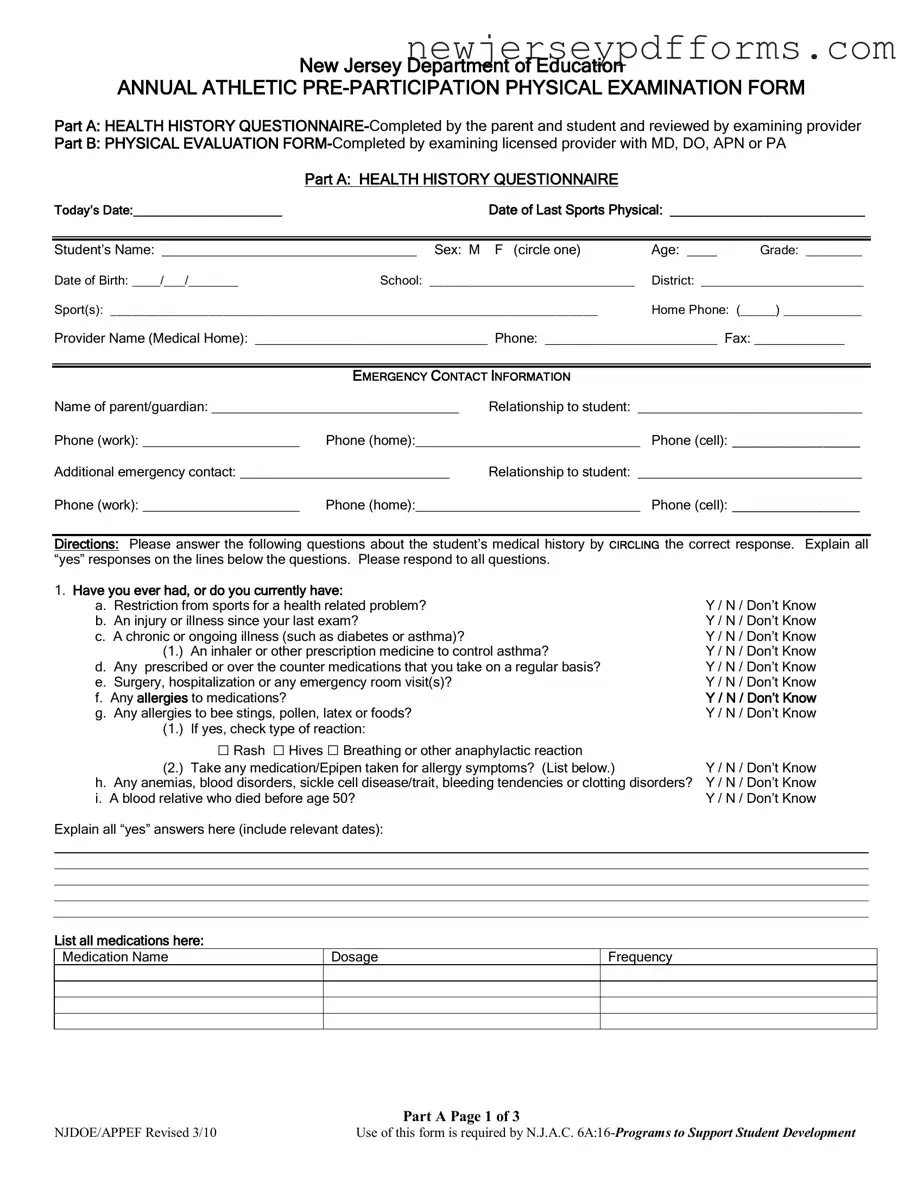The New Jersey Sports Physical form shares similarities with the general medical history form often used in various healthcare settings. Both documents require detailed information about a patient's past and present health conditions. The medical history form typically asks about allergies, medications, and previous surgeries, much like the sports physical form does. This information is crucial for healthcare providers to understand any potential risks associated with physical activity, ensuring the safety of the individual during sports participation.
For those interested in delegating decision-making authority, our comprehensive General Power of Attorney form options provide clarity and customization tailored to individual needs. This legal document serves as a vital tool for ensuring that your interests are represented effectively, facilitating smooth operations in both financial and legal matters.
Another document that resembles the NJ Sports Physical form is the pre-participation physical evaluation (PPE) form commonly used in schools across the United States. The PPE form is designed to assess a student’s physical readiness for sports. It includes sections for health history and physical examination findings. Both forms aim to identify any medical issues that could impact a student’s ability to safely engage in athletic activities, emphasizing the importance of thorough evaluations before participation.
The health screening form used for summer camps also shares similarities with the NJ Sports Physical form. Camp health screenings typically require parents to disclose their child’s medical history, including allergies and chronic conditions. Just like the sports physical, these forms help camp staff ensure that children are fit to participate in camp activities. This proactive approach helps prevent medical emergencies during camp, similar to the safety measures taken in sports.
A well-child visit form from pediatricians is another document that aligns with the NJ Sports Physical form. During well-child visits, healthcare providers gather comprehensive health information, including growth patterns and developmental milestones. Both documents prioritize understanding a child’s health status, which is essential for making informed decisions about physical activities and overall well-being.
The emergency contact form used in schools has a similar purpose to the NJ Sports Physical form. While the sports physical focuses on health history, the emergency contact form gathers essential information about who to reach out to in case of a medical emergency. Both documents ensure that caregivers are prepared for any health-related incidents that may arise during sports or school activities, highlighting the importance of communication and preparedness.
Additionally, the concussion management form utilized by schools and sports organizations is closely related to the NJ Sports Physical form. This form specifically addresses any history of concussions and outlines protocols for managing head injuries. Both documents prioritize the health and safety of student-athletes, ensuring that any past incidents are considered before allowing participation in sports.
Finally, the immunization record form also shares commonalities with the NJ Sports Physical form. Immunization records document a child’s vaccination history, which is often a requirement for school and sports participation. Both forms work together to ensure that children are protected against preventable diseases, supporting their overall health as they engage in physical activities.

